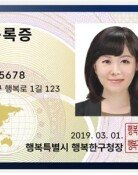[Editorial] Correcting Distorted Foreign Reports
[Editorial] Correcting Distorted Foreign Reports
Posted December. 07, 2009 08:45,
Korea expert Aidan Foster-Carter, honorary senior research fellow in sociology and modern Korea at Leeds University in England, has urged British media including the Financial Times to reflect on their biased coverage over the Korean economy. In a letter to the Financial Times Friday, he said, The South Korean government tends to complain that the British financial press has got it in for them. For once, I fear you have given them cause, asking his countrys media to change their perception of Korea. He mentioned that Korea recently held an event to mark its new status as the worlds ninth-largest exporter, adding Korea has indeed now overtaken the U.K.
Over the past several years, certain foreign media have fueled fears over the Korean economys soundness through distorted reports, especially the U.Ks. The Financial Times said in August and October last year that Koreas situation was similar to that of the Asian financial crisis in the late 1990s, and that Korea had the highest possibility of suffering another financial crisis in Asia. In March this year, it said in a column that Korea had excessive short-term foreign debts and lacked foreign reserves. Such reports rattled the Korean financial market though most of them were found to be flawed and overblown.
Korea is one of the best performers in the Organization for Economic Cooperation and Development this year. The countrys economy grew 0.1 percent quarter-on-quarter in the first quarter, 2.6 percent in the second, and 3.2 percent in the third. The third-quarter growth can be translated into annual growth of 13 percent. Korea is the worlds sixth-largest holder of foreign reserves with 270 billion U.S. dollars and is expected to post a current account surplus of around 40 billion dollars this year. Inflation and unemployment are lower than other countries. Though this is no reason for complacency, such figures show how misleading certain foreign news reports have been. Foreign news outlets need to more prudent and base their reports on accurate data.
The openness of the Korean economy makes it vulnerable to crisis rumors spread by foreign media, raising the governments policy costs to curb pessimistic market sentiment. Foreign news reports should not be blindly trusted or be allowed to easily affect Korea. In reality, however, they cannot be ignored. Certain forces in Korea are exploiting such distorted foreign reports for political interests. They should be held accountable regardless of political viewpoint because national interests are at stake.
For its part, the government should preempt media distortions by providing accurate and timely information to foreign media. Equally important is an early response to distorted reports to prevent further spread of misinformation. The fundamental solution, however, is to enhance the countrys economic fundamentals so that the market is never swayed by distorted reports. This is possible if the government keeps its balance and produces tangible results in conducting economic policy.






